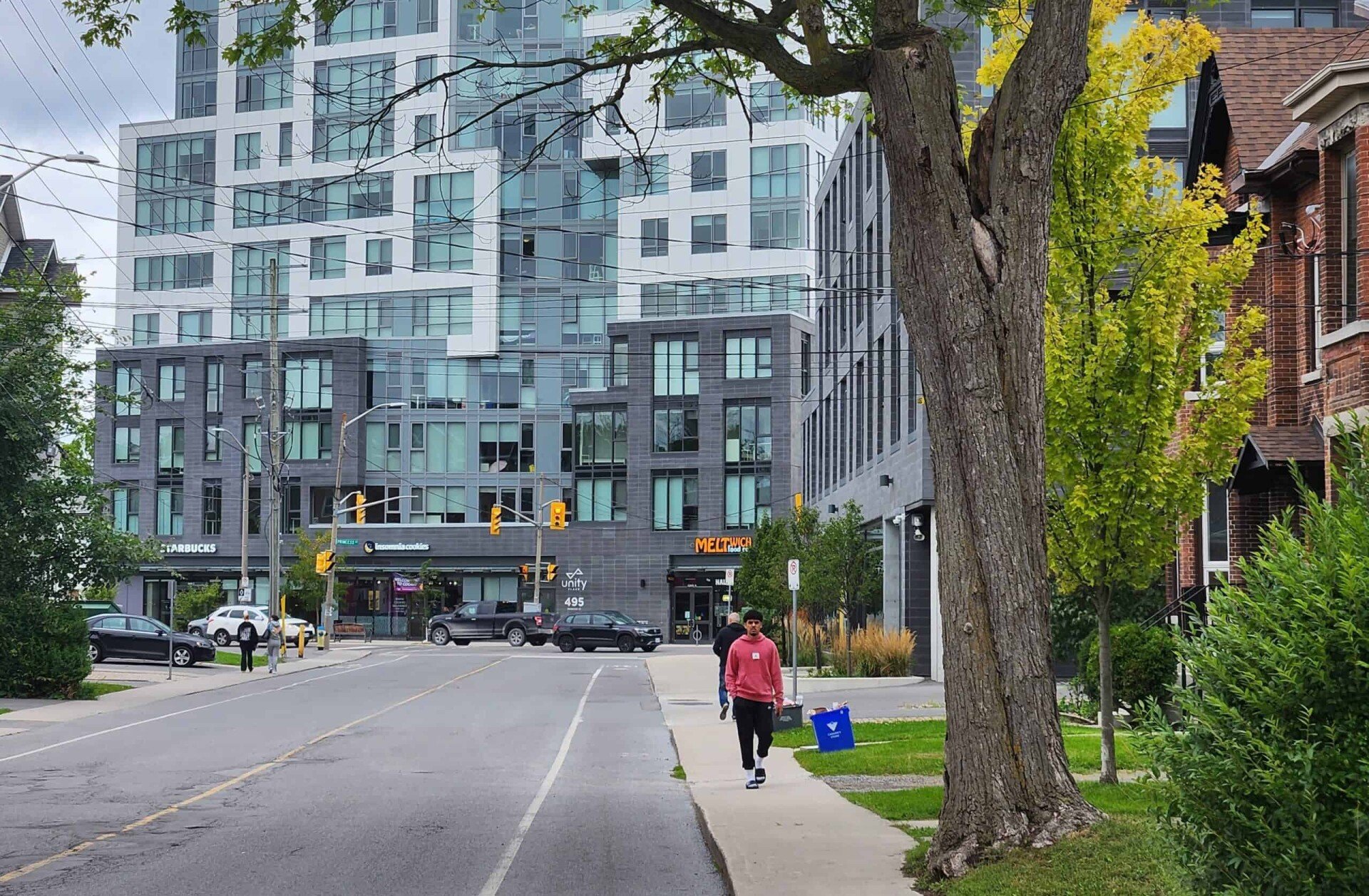International students are being taken advantage of and continue to live in unsuitable conditions, despite the imposed cap and ongoing efforts of organisations working hard to find solutions.
“The study permit cap won’t solve the long-term problem of a shortage of housing,” said Julia Oravec, director with the rented residential market data and advisory firm BONARD.
Canada needs to build more housing specifically for domestic and international students, Oravec told The PIE News.
The website rentals.ca reported that the average rent across the country levelled off at $2,187 in August, down slightly from a high of $2,202 in May. It attributed the change to an increase in the number of apartment buildings completed, a slowdown in population growth and a softening of the labour market.
For Sadia Anjum Hossain, a 25-year-old student from Bangladesh attending Dalhousie University in Halifax, Nova Scotia, those prices are shocking. She arrived with her husband in July and they hoped to find a one-bedroom apartment.
“Rents ranged from $1,800 to $2,500 per month, which was far beyond our budget,” she told The PIE.
After a lengthy search, the couple is now sharing a two-bedroom apartment – two couples in the bedrooms and a fifth person in the living room.
“We regard this apartment as a temporary solution, with the challenges of sharing common spaces and the lack of privacy,” she said.
In the Toronto suburb of Brampton, city councillor Rowena Santos estimates that there are an unreported 100,000 international students.
“There are issues around landlords who exploit these students in vulnerable situations,” said Hossain.
There are issues around landlords who exploit these students in vulnerable situations.
Sadia Anjum Hossain, student
Some international students may be feeling desperate to pay their rent, Santos argues.
“We have recently seen ads online targeting female students, suggesting ‘Friends with Benefits’ to help cover the cost of rent,” she said.
“Canada considerably lags behind other countries, including the United Kingdom, Germany and France, in meeting the needs of both domestic and international students,” Oravec said.
She highlighted that the UK delivers almost double Canada’s 19% net provision rate (the student-to-bed ratio).
In Kingston, Ontario, the city government has made a concerted effort to support private developers constructing student apartment buildings near Queen’s University. In 2023 alone, three new buildings came online with a total of 1,100 apartments. The average price of a three-bedroom apartment is $1,400 per person for a total of $4,200.
St. Lawrence College, which has campuses in Kingston and two smaller cities, said international enrolment is down 60% compared to last year due to the cap. In 2023, the school had about 5,400 international students. This year, landlords with buildings near the college are reporting that they have a number of vacancies.
North Bay, Ontario, is home to Nipissing University and Canadore College. Both domestic and international students are struggling to find appropriate accommodations. Some landlords are asking $1,100 for a room in a shared, dimly lit basement apartment. One Canadian student was sleeping in her car to avoid paying rent – a tactic that will be challenging once winter hits in December.
In other cities across the country, it’s still tough to find housing. According to BONARD’s data, Vancouver has 123,000 students but just 18,000 purpose-built units. In Canada’s largest city, Toronto, there are more than 265,000 students and only 24,000 student beds.
Fortunately, some organisations are working to find solutions. SpacesShared offers a piece of the puzzle – one that identifies seniors with extra bedrooms in their homes and connects them with domestic or international students needing housing. The advantage: SpacesShared uses existing housing stock. There is no need to wait five years for a student apartment building to be planned and built.
“There is an added benefit,” said Sam Jemison of SpacesShared. “The senior citizen gets help covering their costs and it reduces social isolation and premature moves into old-age homes.”
In North Bay, about 250 domestic and 60 international students have opened accounts with SpacesShared. In Toronto, 400 students have signed on, with the average payment being $1,050.




